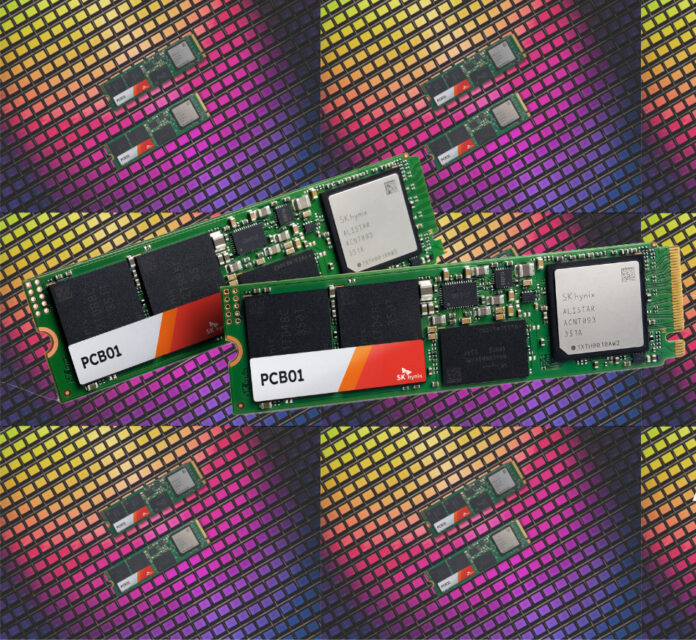Korean memory manufacturer SK hynix is rolling out a sprint-speed SSD for AI PCs.
An AI PC is designed to run small-scale generative AI large language models (LLMs) locally, without relying on larger LLMs in a public cloud. Such PCs are described by Intel as having a Core Ultra processor with an integrated neural processing unit (NPU), and by Microsoft as a Copilot+ PC with an NPU capable of 40 TOPS (trillions or tera operations per second) or more. Dell, Lenovo, and other PC manufacturers are hoping that users and businesses will upgrade their workstations and PC fleets to these higher margin AI PCs.
SK hynix first publicly revealed its AI PC SSD ambitions at the 2024 Nvidia GTC event in March, showing its PCB01 PCIe gen 5 gumstick (M.2 2280) drive, also calling it a Platinum P51 drive. At the time, Jae-yeun Yun, head of NAND Product Planning and Enablement at SK hynix, said: “PCB01 will not only be highlighted for its use in AI PCs, but this high-performing product will also receive significant attention in the gaming and high-end PC markets.”

The drive uses 238-layer TLC (3bits/cell) 3D NAND with a fast SLC cache area and supports a gen 5 PCIe bus with 8 lanes. It will come in 512 GB, 1 TB, and 2 TB capacities, and have up to 14 GBps sequential read bandwidth and 12 GBps write bandwidth. The company has yet to disclose any IOPS numbers.
The sequential bandwidth numbers are good for the large mainstream PCIe gen 5 SSD suppliers but not record-breaking. ADATA’s Nighthawk matches them and FADU’s Echo does 14.6 GBps when reading, but a slower 10.4 GBps when writing.
Mainstream supplier Kioxia’s read-intensive and mixed-use CM7 reaches 14 GBps reads but is relatively poor at writes, notching up 6.75 GBps. Samsung’s PM1743 does 13 GBps reads and 6.6 GBps writes – a similar asymmetric pattern. The SK hynix drive certainly has a high write speed compared to its competitors, and the SLC cache will be helping there.
SK hynix says the PCB01 has onboard Root of Trust technology to prevent invalid accesses and preserve data integrity. We’re told it has 30 percent better power efficiency than the previous generation. The company introduced its earlier PS1010 PCIe gen 5 drive at CES in January 2023. This used 176-layer TLC NAND in an E3.S format.
The PCB01 will be available as an OEM product and also in a consumer version, which might drop the PCIe lane count from 8 to 4.
Ahn Hyun, head of the N-S Committee at SK hynix, said that numerous global providers of CPUs for on-device AI PCs want to have the PCB01 drive validated with their CPUs. The N-S Committee was created by SK hynix in January to strengthen its flash and NAND solutions (N-S) businesses.
Competing gumstick SSD suppliers will also be aware that sticking an “AI PC” marketing tag on their PCIe gen 5 drives may help raise their appeal in a market hyped up by AI. Expect more such drives to appear.








